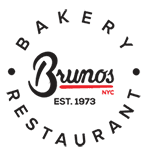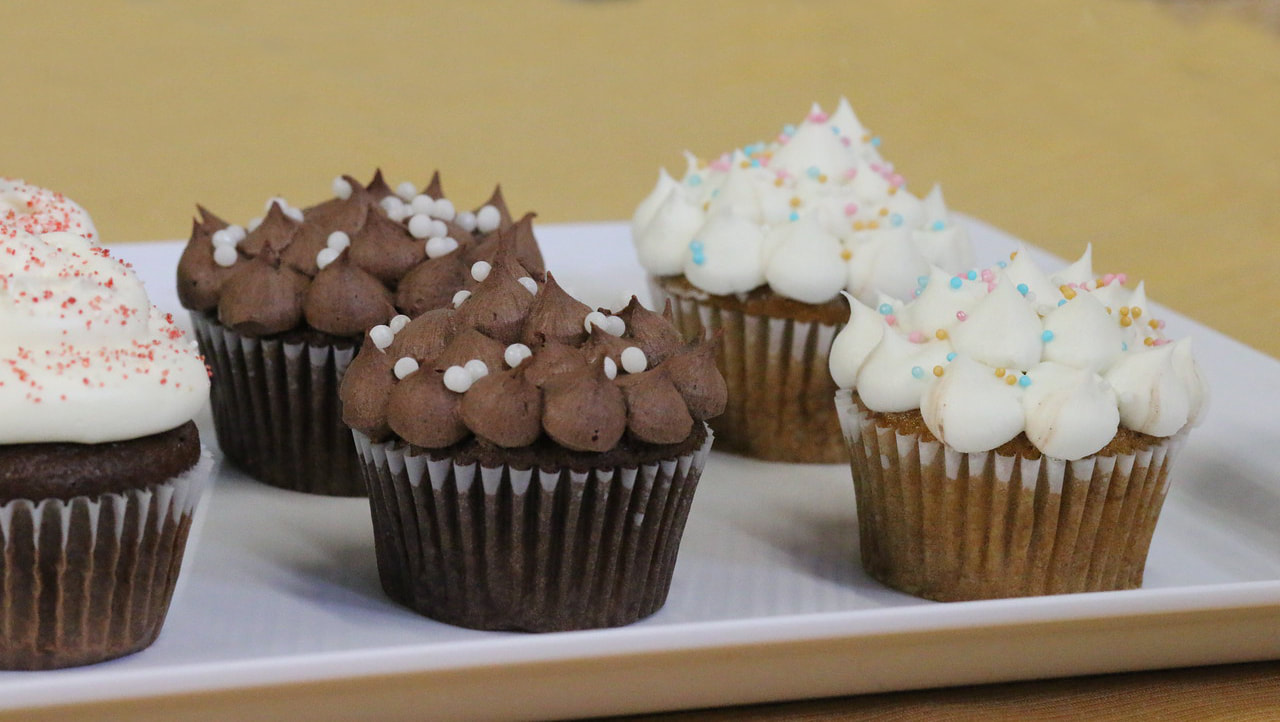|
Interviewee: Chef Penny from the New York Metro Region Food Startup Help has reached out to several business owners, chefs, and experts in the food industry to see how they’re adjusting to the changes that the pandemic has imposed on the industry. We have conducted an interview in a Q&A format. For today Food Startup Help is featuring New York, Chef Penny. In this interview, she explains cake trends and what this facet of the field will look like post-pandemic. Food Startup Help: Before the COVID lockdown, what were the biggest trends you were seeing in your perspective of the food industry? I find cake trends tend to last quite a while, so metallics, grey as a neutral color and heavy textures like stone intermixed with delicates like wafer paper or rice paper flowers are all still very popular. For Sugar Couture, we work as much as possible to avoid trends. We believe that for custom cakes, longevity comes with creativity and finding a way to represent each couple in their cake. We work very closely with our clients to find the design that is perfect for their event, and because of this, we don’t copy other’s designs. Food Startup Help: Do you expect that to change or shift after the quarantine period and economic slowdown? How? I have always tried to find ways of working within parameters and budgets, keeping profitability in mind. So the cakes may be simpler than before. One of the things I’m taking away from this time is that as a society, we’ve reduced things down to the necessary. This means that for the moment, delicious is prioritized over extravagant. I imagine as the quarantine lessens, and larger groups become safer, the cakes we’ll see will still be paired back for the time being. And when this is all over, around 2022, I think there will be a decided shift to extravagant as a reaction to the simpler times. Food Startup Help: How is the reopening/planned reopening affecting other businesses you work within your region? I’m seeing a lot of inquiries for 50 serving wedding cakes. I believe that when venues are allowed to reach that capacity, there will be a reasonable amount of events booked for the end of 2020, assuming we stay on the same trajectory in terms of opening post the Covid-19 quarantine. Because of the government guidelines and social distancing, many previously scheduled events are moving to 2021. I think we’re going to see that be a booming year for those in the industry that can hang on until then. I also think that several of the smaller cake companies will close, and move on to other things. So there may be even more opportunity for those businesses that continue on. Food Startup Help: What do food business owners need to be aware of now and for the next few years? Flexibility is going to be key. It always is in business, but in my particular event space, its a very customized experience and so I’m able to bend with their needs. Finding ways of staying profitable while adjusting to smaller projects, with smaller budgets will be essential, but in niche markets like mine, it’s tricky. You can’t just pivot to another product and have it be profitable. Custom work is not set up in the same way that volume work is. There may be a time that we will have to work with much less help and take on a higher volume of projects for a while. Maintaining quality and originality in this will be a challenge, but so important if we’re going to come out on the other side. FOOD STARTUP HELP: Are there other important factors impacting you and your business that you would like to share with our readers? With all large events in the New York City region pretty much canceled or postponed for 2020, our work has shifted to smaller cakes, for smaller gatherings, and with that, we’ve also temporarily suspended our larger minimum order pricing. In the long run, this will not be profitable, but we still want to be a part of as many celebrations as we can to keep up the goodwill with our clients. --- Follow along with Chef Penny on Instagram and her hashtag at @sugarcouturecakes www.sugar-couture.com
1 Comment
Interviewee: Natasha Capper, Executive Pastry Chef, Piedmont Driving Club
Food Startup Help has reached out to several business owners, chefs, and experts in the food industry to see how they’re adjusting to the changes that coronavirus has imposed on this industry. We have conducted an interview in a Q&A format. For today Food Startup Help is featuring Atlanta Pastry Chef Natasha Capper. In this interview, she explains how her region is beginning to recover from the pandemic quarantine period. FOOD STARTUP HELP: What challenges did you face reopening your facility? Reopening had some challenges with getting enough PPE and sanitizer. We opened in phases with the first one being food-to-go and were lucky that we ordered the single-use containers needed before suppliers were wiped out. Although we are fully open with numerous limitations the restaurants have been slow to pick up. Suppliers that delivered to us the next day Tuesday through Saturday have almost all cut down their delivery schedules so we are having to plan our ingredient orders ahead better. FOOD STARTUP HELP: What food trends had you been seeing in your business pre the COVID-19 virus? Pre-COVID trends of note were primarily more interested in plant-based diets, more elaborate events for a larger number of people, and a desire for quality dining in a more casual atmosphere. FOOD STARTUP HELP: What do you predict to see more of in the immediate future? The same as before, or is it evolving? I predict we will see much smaller and more intimate events not just because they are currently mandated by the governor, but people are hesitant to spend much time in large groups and there is definitely anticipation of a recession. FOOD STARTUP HELP: What lessons can you share with others in other parts of the world/country that are still in quarantine? Food business owners are going to have to maintain the sanitation and cleaning protocols in place now and keep standards high. Not all customers will demand it but many will and that will influence their decisions of where to eat. I also think if it is feasible to do take-out that could be a valuable resource for additional income since it may take a while for dine-in business levels to build to a sustainable level. Until there is a vaccine or we have herd immunity eating out will pose a risk especially to the medically vulnerable. FOOD STARTUP HELP: What other changes are you seeing that might be a consideration for other businesses? Private clubs like where I work are a luxury. If a member feels that they are not getting what they should for the dues they are paying they can and will leave. The challenges are unique in that we need to provide the amenities expected while doing it as safely as possible and with as little inconvenience to the membership as possible. A lot of complementary items such as quick bread in the locker rooms, candied ginger at host stands, and snack mix on the bars are now gone and probably will not come back. Here is hoping our clientele continues to see value in what we can offer now. Interviewee: Joe Settepani of Bruno Patisserie, Staten Island, NY Food Startup Help has reached out to several business owners, chefs, and experts in the food industry to see how they’re adjusting to the changes that coronavirus has imposed on this industry. We have conducted an interview in a Q&A format. For today Food Startup Help is featuring New York Chef Joe Settepani. In this interview, he explains how his region is beginning to recover from the pandemic quarantine period. FOOD STARTUP HELP: What food trends had you been seeing in your business pre the COVID–19 virus? I think the biggest trend that I was noticing was the amount of love and passion that was going into creating beautiful Viennoiserie pastry around the world and to see how people get excited about layers of butter and dough is pretty amazing. I always thought Viennoiserie was one of the most beautiful parts of baking. All the energy you put in to make a beautiful croissant is always worth it at the end! FOOD STARTUP HELP: What do you predict to see more of in the immediate future? Do you expect that demand to change or shift after the quarantine period and economic slowdown? I think trends, in general, may have a slip due to the quarantine period just because some businesses only sell a certain item and for a high price. I think that will end for a little bit because people may be looking to get more for their dollar and focus on buying the essentials that they need for themselves. The other thing that may happen next is that more people have been cooking and baking a lot during quarantine and may end up just making more baked goods themselves. FOOD STARTUP HELP: Your business remained open during the Covid–19 pandemic. What shifted for your business? Will you keep some of these products or services? What’s going on with plexiglass barriers, masks, etc. We are very grateful at Brunos that we were able to stay open during all of this, it was not easy, and probably the hardest period I have ever worked in my life. Some of the prepared foods to go products we made earlier on were great because parents and adults needed something to keep not only the kids busy but themselves busy as well. But now I see more and more families baking everything at home or cooking so it was a good run with those ideas. We offered a pizza kit to go during the quarantine. We may decide to keep the decorate your own cookie for kid’s birthday gifts because those are popular. In regards to the plexiglass, I ordered to put across the bar area and on top of the bakery showcases. However, this is so much demand for plexiglass that I ordered them about 3 months ago and I am currently still waiting for them to come in. As for the customers, masks and gloves, and social distancing, we are following all the rules and regulations that the City of New York places into effect during each step of a new phase. Currently, we are in NYC Phase 2 which just allowed outside dining with the social distancing of 6 feet. Food Startup Help: What do food business owners need to be aware of now and for the next few years? What recommendations do you have for similar businesses in other areas? The food industry and food business owners need to take the ultimate steps to not only protect their employees as they work together in a kitchen, which let’s all be honest it’s hard to work behind a hotline 6 feet apart. We have to think of ways to keep each other safe while making amazing meals and pastries so customers can enjoy it. In the next few years until we have a vaccine I believe the dynamic of a kitchen and the flow of it will change so each employee in that kitchen is not only able to communicate and work well with the one next to them, but also have enough distance between them so that they do not need to worry about anything from a health risk perspective. The best recommendation I can give is to just be on top of your employees to make sure they are taking every step to make sure everything is safe and sanitary. And also have employees get tested or even do your own employee temp check before anyone enters the building for work. FOOD STARTUP HELP: Are there other important factors impacting you and your business that you would like to share with our readers? I think the hardest part is getting a grasp of all the new rules and changes that occur during all the new phases that occur because every time there is a phase change, there is a rule change. That has been the hardest part–just getting ready and compliant for every change. Executive Pastry Chef Joseph Settepani Bruno Bakery & Restaurant 1650 Hylan Blvd 646 Forest Ave Brunosnyc.com Instagram: @Brunosnyc Pastry Chef Instructor at I.C.E [email protected] [email protected] Instagram: @chefjosephsettepani @brunosnyc @iceculinary Interviewee: Tina Korting
Food Startup Help has reached out to several business owners, chefs, and experts in the food industry to see how they’re adjusting to the changes that coronavirus has imposed on this industry. We have conducted an interview in a Q&A format. For today Food Startup Help is featuring Cleveland-based Tina Korting. Tina is a chef turned sales manager who works with food industry clients ranging from universities, casinos, hotels, manufacturers, bakeries, and restaurants. In this interview, she explains how her region (which includes customers in Michigan, Indiana, Kentucky, Connecticut, New York, New Jersey, Ohio, and Pennsylvania) is beginning to recover from the pandemic quarantine period. FOOD STARTUP HELP: Before the COVID lockdown, what were the biggest trends you were seeing in your perspective of the food industry? Buffets were very big, especially in the casinos. FOOD STARTUP HELP: Do you expect that to change or shift after the quarantine period and economic slowdown? How? Yes, definitely. There are definitely no buffets or self- service. We are now most likely to see more table service. Casinos are planning to eliminate self-service and serve plates to individuals (so no more cheese boards, charcuterie boards). For example, bento box type formats will probably do well. In my region, some territories are slowly reopening. Grocery stores and bakeries have stayed open throughout the quarantine period, as have places like chocolatiers with E-commerce. Other places like New York – not yet. There are no events and corporate dining is not yet reopened. FOOD STARTUP HELP: How is the reopening/planned reopening affecting other businesses you work within your region? Food safety will be at the forefront. We as food professionals are used to this and have been trained about safety from the beginning. Relaying this message to the customer on how their food is prepared, safely, would greatly ease client anxiety while eating out. FOOD STARTUP HELP: What do food business owners need to be aware of now and for the next few years? Be flexible and creative. Figure out how to serve meals differently and safely. Most customers are installing Plexiglass partitions, for example, between tables to create dining cubes and tables are generally more spaced apart. Servers are wearing gloves and masks everywhere. FOOD STARTUP HELP: What resources do you offer that can help those businesses change/succeed? Through the transparency of where and how our products are from. Know the source of your ingredients. We are committed to giving detailed information about our products. This is more important than ever now. FOOD STARTUP HELP: Are there other important factors impacting you and your business that you would like to share with our readers? AUI is here to help our communities by having premium, sustainable products that are created with the highest standards. AUIFineFoods.com Interviewee: Chef Michelle Tampakis, Chef/Owner Whipped Pastry Boutique
Food Startup Help has reached out to several business owners, chefs, and experts in the food industry to see how they’re adjusting to the changes that coronavirus has imposed on this industry. We have conducted an interview in a Q&A format. For today Food Startup Help is featuring Chef Michelle Tampakis. In this interview, she explains how she is responding to the pandemic and what she looks forward to once this hardship is behind us. FOOD STARTUP HELP: What is happening in your business now given the COVID-19 virus? Are you still able to work? Whipped Pastry Boutique shut down on March 19, 2020, as a result of the Coronavirus. All our hotel/restaurant/catering clients were canceling their orders one after another in rapid succession. Although our supermarket/specialty grocer customers were still placing orders, it was not sufficient to sustain the business. A note from one of Michelle’s daughters via Facebook, when the virus forced the closure of small businesses, Michelle used up all the ingredients she had on hand at Whipped Pastry Boutique and baked to deliver goods to hospitals for doctors, nurses, hospital staff. FOOD STARTUP HELP: What are your hopes for the near future in terms of your work? I don't think the near future is something to count on. I believe it will take many months, maybe more than a year for our hotel/restaurant/catering clients to catch up. Travel will resume eventually, but all the events, (weddings, christenings, bar mitzvahs, etc). that we had orders for will not suddenly all be rescheduled as soon as the shelter in place orders are lifted. I think people will change the way they live for a few years after this experience, at least until the shock wears off. People who go weeks without work and have to make do with unemployment checks will be more frugal. There will be many restaurants that never re-open and those employees may have to transition to a new type of work since restaurant jobs will be fewer. FOOD STARTUP HELP: If we had not had the virus change our lives, what had you been seeing as the most important food/beverage related trend(s) in what you do? If the virus had not changed our lives, the trends I was seeing in my bakery were for more and more vegan items, with fewer ingredients. FOOD STARTUP HELP: Is there anything else you would like to add, or for potential food industry professionals, entrepreneurs, students, and/or your customers to know. Prospective entrepreneurs, students, etc. should expect to really understand the market they are getting into, pay close attention to the regulations (which are only getting stricter and more cumbersome with the Food Safety and Modernization Act) and have a real marketing plan in place, with money budgeted towards that. Understanding how/why to keep customers coming back is critical. Listen to customer feedback and follow up on it. Don't take your customers for granted. --- Follow along with Chef Michelle Tampakis on Instagram and her hashtags at @WhippedPastryBoutique and look for notifications of her online gluten-free courses on CourseHorse.com Instagram #Whipped Pastry Boutique www.whippedpastryboutique.com Interviewee: Chef Claire Stewart
Food Startup Help has reached out to several business owners, chefs, and experts in the food industry to see how they’re adjusting to the changes that coronavirus has imposed on this industry. We have conducted an interview in a Q&A format. For today Food Startup Help is featuring Chef Claire Stewart, Associate Professor in the Hospitality Department at New York City College of Technology, CUNY. In this interview, she explains how the city and university are responding to the pandemic and what he looks forward to once this hardship is behind us. FOOD STARTUP HELP: What is happening in your business now given the COVID-19 virus? Are you still able to work? I am able to work because I work for a large institution and am fortunate to have tenure and am in a teacher’s union. All my courses have been converted on-line. FOOD STARTUP HELP: What are your hopes for the near future in terms of your work? I have two edited book chapters for two different books under peer review right now, hoping that both will be published in 2021. FOOD STARTUP HELP: If we had not had the virus change our lives, what had you been seeing as the most important food/beverage related trend(s) in what you do? The boundaries between haute cuisine and comfort food have shifted irreversibly. Upcoming chefs are not insecure about not speaking French or working in “starred” restaurants. Contemporary cuisine looks to cultures beyond Europe for inspiration. Nordic and Atlantic cuisine are very popular, and their popularity lends itself to the sustainability movement. FOOD STARTUP HELP: What do you think was driving these trends in the food//beverage industry or educational system? What did people want? The internet and social media have made it increasingly challenging to present customers with something new and Instagram-ready. Boundaries keep getting pushed in order to offer more colorful, photo-ready food for an audience that wants to be a part of the process. Millennials and Gen Zers want to customize their food; to be involved in its sourcing, and to photograph it. Hunting and foraging are rising in popularity with this cohort for these reasons as well. FOOD STARTUP HELP: Do you have any specific hopes or expectations for what will happen when we get through the economic impact from the COVID-19 virus? What do you think people will want? I think any activity that involves people gathering in numbers will continue to be affected. Surely restaurants will ramp up their take-out selections. Service jobs (wait staff, bartenders, etc.) will continue to be threatened by automation. My hope is that businesses are able to recover, but it will be a hard road. FOOD STARTUP HELP: Is there anything else you would like to add, or for potential food industry professionals, entrepreneurs, students, and/or your customers to know. I have been trying to convey to my students 2 important things. 1. There is opportunity in disaster. The cream will always rise to the top. In 2008 during the recession there was an out-of-work house painter. He had no education and had spent a lot of money on purchasing industrial paint equipment. No one was getting their house painted during bad economic times, so he was suffering. One day, driving through a depressed housing development, he was startled by all the empty foreclosed houses, given over to the bank and left abandoned. Every house had “for sale” signs in front, but the houses looked terrible from the outside because all their lawns were dry and brown. He used his equipment to spray one of the lawns dark green, making the lawn look alive and much better than the lawns of the houses around them. A realtor saw this and contacted him. He ended up “painting” all the lawns in the development and ended up hiring staff to keep up with demand as other companies contacted him. I shared this story with my class last week and asked them to inventory what they had, and how could they use it? Students wrote that they could teach dance, or paint nails, or deliver food, act as a Spanish translator, etc. Everyone has something they can use to create revenue. 2. Employees (or budding entrepreneurs) must be able to follow directions. Before the epidemic jobs were flush. Now they are not. So workers need to reassess how they bring value to their employers or to their clients. One talent that makes a good employee is the ability to follow instructions. Without verbal or physical clues (doing on-line work) this is more important than ever. ____ Follow along with Chef Claire Stewart on http://www.aslongaswebothshalleat.com/ |
AuthorFoodStartupHelp helps clients all over the country start new food-related businesses and turn around food operations that are experiencing challenging issues. Archives
July 2020
Categories |






 RSS Feed
RSS Feed